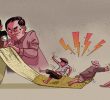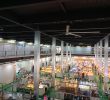Uptick
STILL, not all Filipinos sending money home are pessimistic.
Take US-based overseas Filipino-turned-exporter Robert Ceralvo, who expects a stronger peso to �gradually �and hopefully not very long� translate to lower prices of utilities, commodities and many other day-to-day needs that the OFW family regularly purchases and consumes.�
�A lower exchange rate, which at the onset translates to lower domestic purchasing power for OFW beneficiary families, will, in time, translate to a general increase in the real purchasing power, i.e. it will be cheaper to buy imported goods, cheaper to travel abroad, etc.,� Ceralvo said in reply to questions sent by electronic mail.
Indeed, Average inflation has fallen substantially from 7.6 percent in 2005 to 6.2 percent in 2006 as the dollar weakened against the peso.
Ceralvo added a stronger peso spells �good news for businesses that rely on imported input or raw materials and for those who are investing on call centers, telecoms and BPOs who are buying and bringing in new technology from other countries.�
But from an exporter�s point of view, Ceralvo said they share the same sentiments as the OFWs have.
�Right now our handicrafts, woodcrafts, toys, gifts and collectibles, home furnishings, Christmas d�cor, apparel and garments industries, etc. are gasping their last breathe, trying to survive from stiff competition from China, Vietnam, Indonesia, new republics from eastern Europe and Africa,� he explained.
�A strong currency � will make our exports more expensive, and a fall in exports has a negative effect on our economic growth,� he added.
For some OFWs like Arlene, however, sending the additional remittance amount meant additional work hours or securing additional sources of income.
Her father said their daughter has asked the administrator of the hospital she�s working for to increase her weekly overtime by at least five hours.
�She cannot just increase my remittances without increasing her monthly income,� Arlene�s father said.
On the other continent, Lando Realubid began repairing appliances for fees lower than licensed repair shops.
His wife Beth said Lando does this on his off-hours working in the docks of Bahrain as a port-based third engineer.
�He makes an additional US$100 to US$200 a month doing appliance repairs,� Beth said. However, this is seasonal since she said there are months when no one asks for repairs.
Joseph, likewise, had to work extra hours. From a 52-hour workweek, including overtime, he is now breaking his back 12 hours more, or two additional hours everyday on a six-day workweek on board a tanker.
“For a fragile, [some say] �strange� economy like ours, there are certainly losers and winners in the fluctuation of the exchange rates, both short-term and long-term,� Ceralvo said.
Still, he added that the OFW family still has more leverage and hedging abilities than the rest of the population, to offset the negative effects of a strong currency.
�They can still fully enjoy the positive effects of a deteriorating peso exchange rate,� because they can rely on our dollars, he said. (LEO J. SANTIAGO, JR. and JULIE JAVELLANA-SANTOS/OFW Journalism Consortium/www.ofwjournalism.net)
Posted in davaotoday.com.
Pinoy Life Abroad









